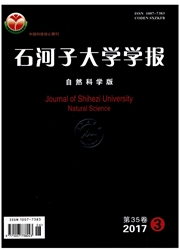

 中文摘要:
中文摘要:
犬细小病毒是一种对犬科动物危害严重的DNA病毒,为了解其主要蛋白的密码子使用特点,本文运用EM—BOSS(The European Molecular Biology Open SoftwareSuite)的CHIPS和CUSP程序、Codonw在线软件对CPV全基因组及3种主要蛋白基因的有效密码子数(ENc)、相对同义密码子使用度(RSCU)、碱基含量(GCa11、GC1、GC2、GC3)进行分析。结果显示:CPV基因组、Nsl、VPl、VP2基因的Nc值分别为36.46、37.86、35.05和32.87,表明CPV对同义密码子的使用具有明显的偏爱性;对第3位核苷酸为A和T的密码子表现出明显的偏爱性;GC含量普遍偏低(均小于40%)。进一步分析发现CPV的3种主要蛋白基因与大肠杆菌、人密码子偏爱性差异较大,与酵母密码子偏爱性差异较小,提示表达系统选择酵母较为合适。
 英文摘要:
英文摘要:
Canine parvovirus (CPV) is a DNA virus causing serious harm to canines. In order to understand its major protein codon usage characteristics,CHIPS and CUSP programs of EMBOSS (The European Molecular Biology Open Software Suite) and CodonW software were used to analyze effective number of codon (ENe), relative synonymous codon usage (RSCU)and the base content (OCall, GC1, GC2, GC3) of CPV genome. The results showed that the ENc values of CPV genome, NS1, VP1, VP2 genes were 36.46,37.86,35.05 and 32.87 respectively, indicating that synonymous codon usage of CPV showed obvious prefer ence;the third rmcleotides A and T codon showed marked preference;the GC content was generally low (less than 40 G ). Fur ther analysis showed that there was less difference in codon preference between CPV three major protein genes and yeast, but more difference with E. coli and human. The study suggests that the expression of three main structural protein genes is more appropriate in yeast cell.
 同期刊论文项目
同期刊论文项目
 同项目期刊论文
同项目期刊论文
 期刊信息
期刊信息
